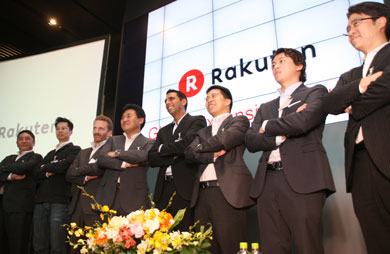
Not a day goes by without Japanese school children hearing the terms globalization (グロバール化) or internationalization (国際化), and why it’s so important for their future careers. In fact, the whole country seems to be swept up in a fervor of these two words. But do Japanese people really understand the meanings of them, or are the terms just being used as catchphrases?
Enter Austin, an international student who has been living in Japan since 2012. Last week he posted a thought-provoking piece called “Some Thoughts – And Doubts – About Japan’s Internationalization” on Tofugu, a Japanese language and culture blog. The piece has circulated around the Internet, and was even picked up and summarized in Japanese by popular Japanese blogger Madame Riri. In it, Austin addresses how while Japan may be making efforts to globalize on the surface, it still lacks something on a deeper level that is preventing it from becoming truly internationalized. Join the debate after we take look at some of his thoughts below.
Tofugu writer Austin wonders if Japan is going about internationalizing itself in the right way. At the heart of the matter, he tries to pinpoint the true meanings of the terms “internationalization” and “globalization.”
According to Madame Riri, these two terms refer to “acting globally, being able to compete on an international stage” and “being able to accept a global outlook, as opposed to always looking inwardly,” respectively. And it seems that now more than ever Japan really does need to step up its game if it wants to continue competing on an international level. Top Japanese brands like Panasonic and even Nintendo aren’t doing as well as they once were, and competition from Chinese and Korean brands grows stronger every day. A lot of obstacles need to be overcome in order to reverse this pattern, and Prime Minister Abe has expressed his desire to see 10 Japanese universities into the top 100 global rankings list in the coming years.

The following are some of the main topics brought up by Austin in his piece. If you’ve lived in Japan for an extended period of time, perhaps you’ll be able to sympathize with some of his points. Is there anything that you strongly disagree with?
- English education
Of course, who could neglect to mention the issue of English education in Japan? As anyone who has has ever taught English here can tell you, there seem to be a lot of contradictory feelings when it comes to English. On the one hand, English in movies and popular music is viewed as being cool and desirable. On the other hand, students still complain about the necessity of learning English at school, even while being constantly bombarded by people telling them that English is a surefire tool for future success. So what’s missing?
Japanese students begin engaging in occasional “foreign language activities” in the fifth grade, and they do not start formal English classes until the first year of junior high school (usually around 13 years old.) This late start could be one factor why it is so hard for them to catch up with students, especially when compared to other Asian countries such as South Korea, where children begin learning English in third grade. In addition, many grade school teachers are not adequately prepared to teach English, even if they have a good command of the language or understanding of its grammatical structure. Perhaps these factors will change in the upcoming years as the government is contemplating requiring a TOEFL (Test of English as a Foreign Language) score on all university entrance applications, regardless of program.
▼English education in Japan pales in comparison to other Asian countries

- University life
As an international student at a Japanese university, Austin has a lot of experience with this one. He explains how although many Japanese universities tout exemplary international exchange programs, in reality there is actually very little interaction between foreign students and Japanese students. International students are often placed in completely separate programs of study where they have little actual contact with Japanese students. The same goes for living arrangements on or off campus. As a result, foreigners and Japanese often fail to intermingle, and do not take advantage of the diverse knowledge each group has to offer the other.
▼International students and Japanese university students often fail to intermingle

- The corporate world
While some Japanese corporations have taken extreme measures to “internationalize” themselves (think of Rakuten, where English is the sole language used in-house), others have only superficially made an attempt to do so by hiring foreigners. However, does the presence of foreigners at a Japanese firm really signify any great development towards globalization? Austin points out that foreigners who are working at Japanese companies are often treated as “Japanese who just speak another language,” and the enriching experiences they could potentially bring into the mix are not being used effectively at all. They often conform into traditional hierarchical Japanese working practices, where their voices cannot be heard. While he does not say that Japanese companies should have a major cultural upheaval, Austin believes that some component should be added if companies do not want the talents of their international workers to go to waste.
▼Perhaps Japanese companies should revamp the way they utilize foreigners internally

- Immigration
Austin also touches upon Japan’s immigration system, which is very strictly regulated. It is notoriously difficult for foreigners to gain permanent residency in Japan if they are not married to a Japanese person. Austin illustrates this case with a personal anecdote, stating that even his friend who has taught at a Japanese university for some 10 years now was denied permanent residency last year.
But how can an overall homogeneous society such as Japan achieve internationalization when the chances to interact with foreigners are so limited to begin with? Related to this point is also how Japan sends fewer students to study abroad than China or South Korea.
▼Some of the world’s strictest immigration requirements make taking up residence in Japan a real challenge.

Austin sums up his his discussion by saying that what Japan needs is not superficial reforms, but should instead endeavor to change things on a much deeper level:
“It seems to me that Japanese attempts to internationalize by bringing in more foreigners, enforcing standards of English etc. are simply fulfilling the prerequisites of internationalization. This does not necessarily mean internationalization itself.”
Time will only tell when, or what, the impetus for change will be.
We hope you found the points in this article stimulating and informative. Be sure to check out the comments section at the bottom of Austin’s article for several reflective thoughts by readers. And of course, please feel free comment here in the space below, too!
Sources: Tofugu, Madame Riri
Top image: Flags of the World
Insert images: Kikkake, University of Shizuoka, Yamato-gokoro, IT Media, Flickr

 University of Tokyo announces new department with all classes taught in English
University of Tokyo announces new department with all classes taught in English 5 reasons foreigners find it hard to become friends with Japanese people
5 reasons foreigners find it hard to become friends with Japanese people English language education in Japan: Are native speakers essential?
English language education in Japan: Are native speakers essential? Japanese university globalizes with fall start date, governor wants English as official language
Japanese university globalizes with fall start date, governor wants English as official language Things Japanese girls do that make foreign guys run for the hills
Things Japanese girls do that make foreign guys run for the hills Japan’s cherry blossom season predicted to start earlier than we’d thought, especially in Tokyo
Japan’s cherry blossom season predicted to start earlier than we’d thought, especially in Tokyo Starbucks Japan unveils new sakura cherry blossom collection for hanami season 2026
Starbucks Japan unveils new sakura cherry blossom collection for hanami season 2026 Live-action One Piece’s Luffy teaches Sesame Street’s Elmo a Japanese word for friendship[Video]
Live-action One Piece’s Luffy teaches Sesame Street’s Elmo a Japanese word for friendship[Video] One Piece creator has hidden secret of anime treasure’s identity in chest at bottom of real-world ocean
One Piece creator has hidden secret of anime treasure’s identity in chest at bottom of real-world ocean The results are in! One Piece World Top 100 characters chosen in global poll
The results are in! One Piece World Top 100 characters chosen in global poll Viral Japanese cheesecake from Osaka has a lesser known rival called Aunt Wanda
Viral Japanese cheesecake from Osaka has a lesser known rival called Aunt Wanda 7-Eleven Japan now sells bagels…cooked in bamboo steamers
7-Eleven Japan now sells bagels…cooked in bamboo steamers Japan’s Human Washing Machine pods are now on sale for home use, and they’re not cheap
Japan’s Human Washing Machine pods are now on sale for home use, and they’re not cheap Taste-testing Japan’s real-world Dragon Balls and Senzu Beans at Marugame Seimen
Taste-testing Japan’s real-world Dragon Balls and Senzu Beans at Marugame Seimen One-Punch Man knit cap is the one piece of anime winter gear you need to keep your head warm
One-Punch Man knit cap is the one piece of anime winter gear you need to keep your head warm Starbucks Japan releases first-ever Hinamatsuri Girls’ Day Frappuccino
Starbucks Japan releases first-ever Hinamatsuri Girls’ Day Frappuccino Japanese restaurant chain serves Dragon Ball donuts and Senzu Beans this spring
Japanese restaurant chain serves Dragon Ball donuts and Senzu Beans this spring Is Tokyo Station’s startlingly expensive wagyu bento boxed lunch worth its high price?[Taste test]
Is Tokyo Station’s startlingly expensive wagyu bento boxed lunch worth its high price?[Taste test] Japan Extreme Budget Travel! A trip from Tokyo to Izumo for just 30,000 yen [Part 2]
Japan Extreme Budget Travel! A trip from Tokyo to Izumo for just 30,000 yen [Part 2] Japan’s craziest burger chain takes menchi katsu to new extreme levels
Japan’s craziest burger chain takes menchi katsu to new extreme levels Sakura Festival in Chiyoda mixes illuminations, boats, music, and Rilakkuma in the heart of Tokyo
Sakura Festival in Chiyoda mixes illuminations, boats, music, and Rilakkuma in the heart of Tokyo Japan’s newest Shinkansen has no seats…or passengers [Video]
Japan’s newest Shinkansen has no seats…or passengers [Video] Starbucks Japan releases new sakura goods and drinkware for cherry blossom season 2026
Starbucks Japan releases new sakura goods and drinkware for cherry blossom season 2026 Foreigners accounting for over 80 percent of off-course skiers needing rescue in Japan’s Hokkaido
Foreigners accounting for over 80 percent of off-course skiers needing rescue in Japan’s Hokkaido Super-salty pizza sends six kids to the hospital in Japan, linguistics blamed
Super-salty pizza sends six kids to the hospital in Japan, linguistics blamed Starbucks Japan unveils new sakura Frappuccino for cherry blossom season 2026
Starbucks Japan unveils new sakura Frappuccino for cherry blossom season 2026 Foreign tourists in Japan will get free Shinkansen tickets to promote regional tourism
Foreign tourists in Japan will get free Shinkansen tickets to promote regional tourism The 10 most annoying things foreign tourists do on Japanese trains, according to locals
The 10 most annoying things foreign tourists do on Japanese trains, according to locals Take a trip to Japan’s Dododo Land, the most irritating place on Earth
Take a trip to Japan’s Dododo Land, the most irritating place on Earth Naruto and Converse team up for new line of shinobi sneakers[Photos]
Naruto and Converse team up for new line of shinobi sneakers[Photos] Survey asks foreign tourists what bothered them in Japan, more than half gave same answer
Survey asks foreign tourists what bothered them in Japan, more than half gave same answer Japan’s human washing machines will go on sale to general public, demos to be held in Tokyo
Japan’s human washing machines will go on sale to general public, demos to be held in Tokyo Starbucks Japan releases new drinkware and goods for Valentine’s Day
Starbucks Japan releases new drinkware and goods for Valentine’s Day We deeply regret going into this tunnel on our walk in the mountains of Japan
We deeply regret going into this tunnel on our walk in the mountains of Japan Studio Ghibli releases Kodama forest spirits from Princess Mononoke to light up your home
Studio Ghibli releases Kodama forest spirits from Princess Mononoke to light up your home Major Japanese hotel chain says reservations via overseas booking sites may not be valid
Major Japanese hotel chain says reservations via overseas booking sites may not be valid Put sesame oil in your coffee? Japanese maker says it’s the best way to start your day【Taste test】
Put sesame oil in your coffee? Japanese maker says it’s the best way to start your day【Taste test】 No more using real katana for tourism activities, Japan’s National Police Agency says
No more using real katana for tourism activities, Japan’s National Police Agency says Why Foreign Guys in Japan Get So Many Girls
Why Foreign Guys in Japan Get So Many Girls Japan reaches its lowest-ever ranking on Education First’s 2024 English Proficiency Index
Japan reaches its lowest-ever ranking on Education First’s 2024 English Proficiency Index Since when was Halloween so popular in Japan?
Since when was Halloween so popular in Japan? Who has better manners? Blogger lists three things foreigners do that impress even the Japanese
Who has better manners? Blogger lists three things foreigners do that impress even the Japanese Westerners in Japan – do they really ALL speak English? 【Video】
Westerners in Japan – do they really ALL speak English? 【Video】 The top 10 Japanese restaurants outside of Japan
The top 10 Japanese restaurants outside of Japan 7 things Japanese people in international marriages wish they’d known before tying the knot
7 things Japanese people in international marriages wish they’d known before tying the knot Why it’s so important for Japanese celebrities to star in commercials
Why it’s so important for Japanese celebrities to star in commercials Japan’s Kinki University decides to change its naughty-sounding name
Japan’s Kinki University decides to change its naughty-sounding name 10 cringeworthy habits of English-speaking Japanese
10 cringeworthy habits of English-speaking Japanese Under 35 percent of middle school English teachers in Japan meet government proficiency benchmark
Under 35 percent of middle school English teachers in Japan meet government proficiency benchmark Japanese PM’s “low-level English” tweet to Donald Trump reportedly slammed by his own party
Japanese PM’s “low-level English” tweet to Donald Trump reportedly slammed by his own party 5 reasons why Japanese expats say “sayonara” to their homeland for good
5 reasons why Japanese expats say “sayonara” to their homeland for good 30 common characteristics of people who fall in love with Japan
30 common characteristics of people who fall in love with Japan